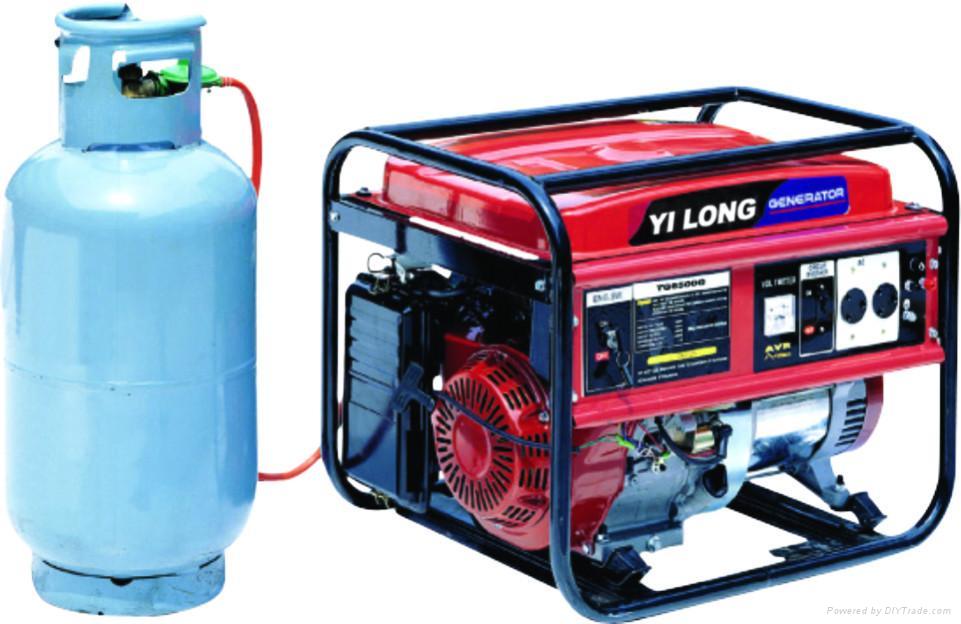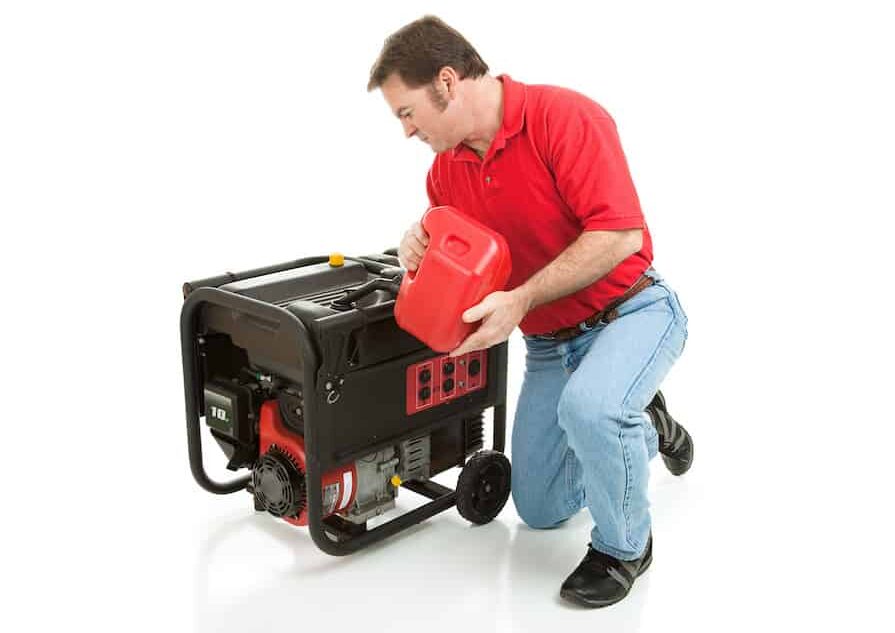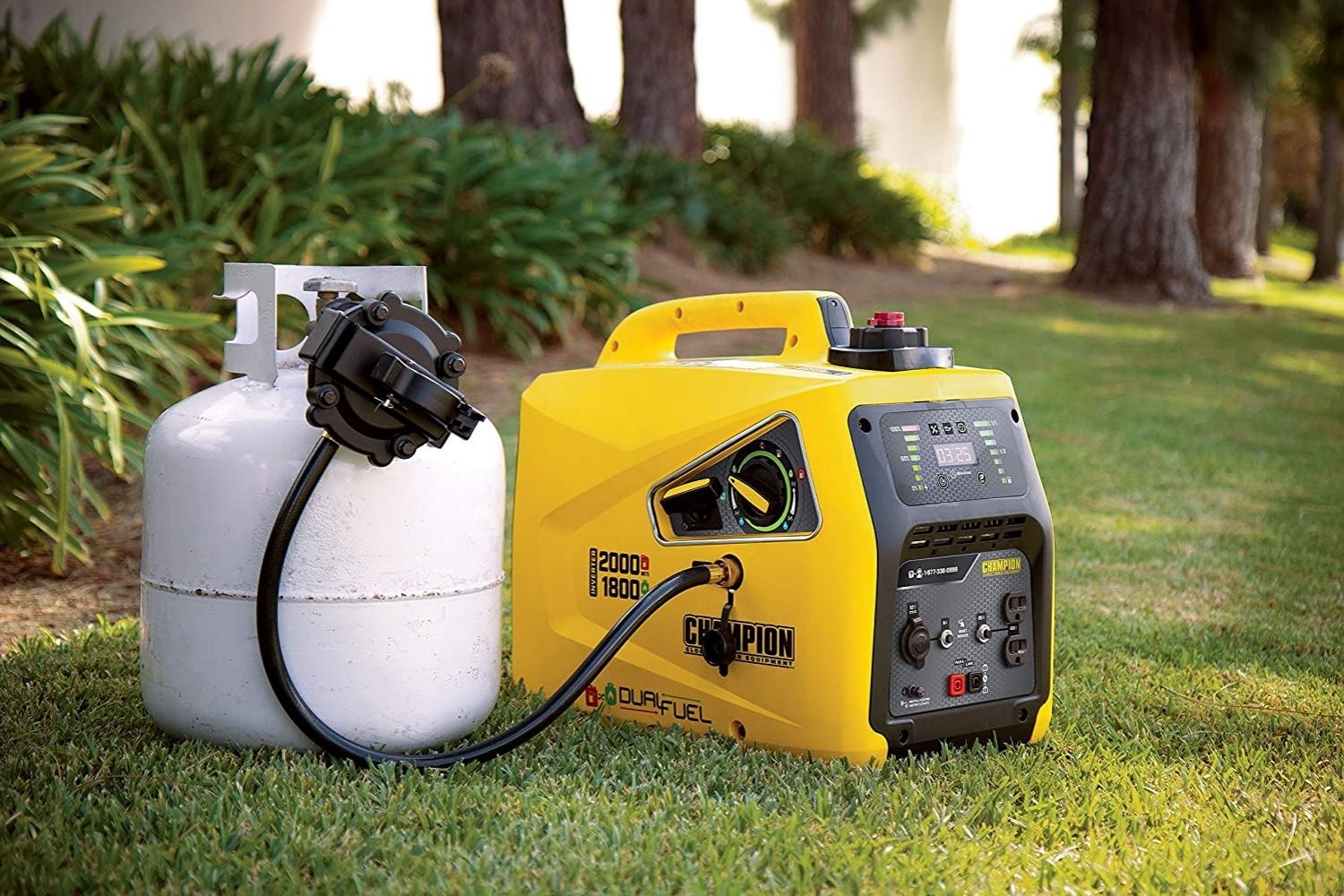If you plan to buy a new generator, you may wonder how much gas the equipment will consume. For camping enthusiasts and homeowners, the gas consumption rates are a significant consideration.
The simple answer to this question is: it varies according to the generator you use.
It is essential to be aware of your generation’s fuel consumption pattern to determine the charges. In this piece, we’ll breakdown everything you need to know about ‘How much gas does a generator use?’.
Factors Affecting the Generator’s Gas Consumption
‘How much gas does a generator use?’ depends on several aspects. These include the type of fuel, generator type and also, load. All of these factors influence how much gas your generator requires to run.
Fuel Type
The fuel type of the equipment you pick has a significant impact on the fuel consumption rate. Remember that some fuels burn faster than others. Let’s take a look at all the fuel types.
Diesel
In case you are looking for the most efficient burn, then diesel is the most suitable option. It is because diesel burns slower than any other fuel out there. However, there are environmental concerns with running your generator on diesel.
You might notice that some diesel generators burn dirty, releasing harmful toxins into the environment. Here’s a chart that consists of all the details of the impressive fuel consumption of diesel.
| Generator Size (in kW) | Full Load (gallons/hr) |
| 2250 | 159.6 |
| 2000 | 141.9 |
| 1500 | 106.5 |
| 1000 | 71.1 |
Gasoline
 Gasoline is one of the most commonly available fuels across the world. You’ll notice that most of the households in your neighborhood have a gasoline generator.
Gasoline is one of the most commonly available fuels across the world. You’ll notice that most of the households in your neighborhood have a gasoline generator.
Are you wondering how much gasoline a generator uses per hour? In that case, let us tell you that the numbers are moderate.
On average, users can expect a gasoline generator to use up to .075 gallons per hour. You may also come across less expensive gasoline models in the market. The thing about inexpensive and cheap generators is that they demand frequent refueling.
Also, you must know that gasoline might be challenging to find during emergencies.
Natural Gas
Natural gas is a much better and cleaner alternative to diesel. However, even natural gas is not an eco-friendly option. One of the fundamental reasons to consider this type of fuel is if your house has a natural gas line.
Without these gas lines, it might not be possible for you to run the natural gas generator. Another issue with natural gas is that it runs incredibly fast. It would help if you considered the availability of natural gas before buying a generator.
| Generator Size (in kW) | Full Load (cu.ft./hr) |
| 2250 | 22184 |
| 1750 | 17264 |
| 1000 | 9883 |
Propane
Propane is one of the most versatile materials that have easy availability. It works similarly to gasoline. Propane is a popular choice for standby generators. If your home does not have natural gas lines, this is a perfect option for you.
Most of the blackout-prone areas use propane generators because they are easy to source in remote locations. A 500-gallon propane generator can power a full house for a whole week. Most models burn about three gallons per hour.
Generator Type
The generator type you select will provide you a relative answer to the gas consumption patterns. Different generator designs have unique fuel requirements. You will learn about different generator types and how much fuel they generally use in this section.
Standby
The primary aim of the standby generators is to make sure that you have backup during emergencies. For people who reside in regions having inclement weather, these generators are handy.
Typically, these generators pack so much capacity that you can power up your whole house. However, due to its enormous size, the fuel consumption pattern is also high. Because it deals with heavy loads, it will require frequent refueling.
Portable
 If you travel often, it is better to consider a portable generator. You can use the portable generator to power up your RV or use it in campsites. Depending on the generator size you pick, it can take tasks like powering appliances and laptop charging.
If you travel often, it is better to consider a portable generator. You can use the portable generator to power up your RV or use it in campsites. Depending on the generator size you pick, it can take tasks like powering appliances and laptop charging.
However, these portable units are not reliable enough to power up a whole house. Because of their compact size, they use lesser gas and require frequent refueling. It’s better to check the fuel tank capacity before making a purchase decision.
Tri-Fuel
If you are looking for a versatile generator, you can opt for the one with tri-fueling options. As the name suggests, the tri-fuel models can work with three types of fuel. You can use gasoline, liquid propane, and natural gas to power up your generator.
There are also dual-fuel generators. Their gas consumption rate is similar to that of a standby unit, only a tad lesser. With some tips and tricks, you can turn your old generator into a tri-fuel generator.
Inverter
The inverter generator is the most compact and one of the best options for powering up small gadgets. The reason these kinds of generators have become so popular is because of their gas efficiency.
The best thing about inverter generators is that you can pre-charge them using electricity. In this way, you can save up gas costs. Not to mention, the inverters are more user-friendly and technologically updated.
Load
The final but most important aspect that affects a generator’s gas consumption is the load. The load refers to the number of appliances connected to the generator. The more devices you use, the more fuel consumption will take place.
An example of the light load is personal electronics, whereas a heavy load is powering a whole house. It would help if you considered the things you want to power up through the generator. In case you are going to power up the entire house, the gas consumption will be higher.
Most generators advertise themselves based on a 50% load. If you are aware that you will require more than 50% of the power, consider consumption with 100% load.
The Bottom Line
Now that you know how much gas a generator uses, you’re ready to buy a generator. Make sure to check the type of gas/fuel availability in your vicinity before purchasing the generator. We hope you had an interesting time reading this article!
